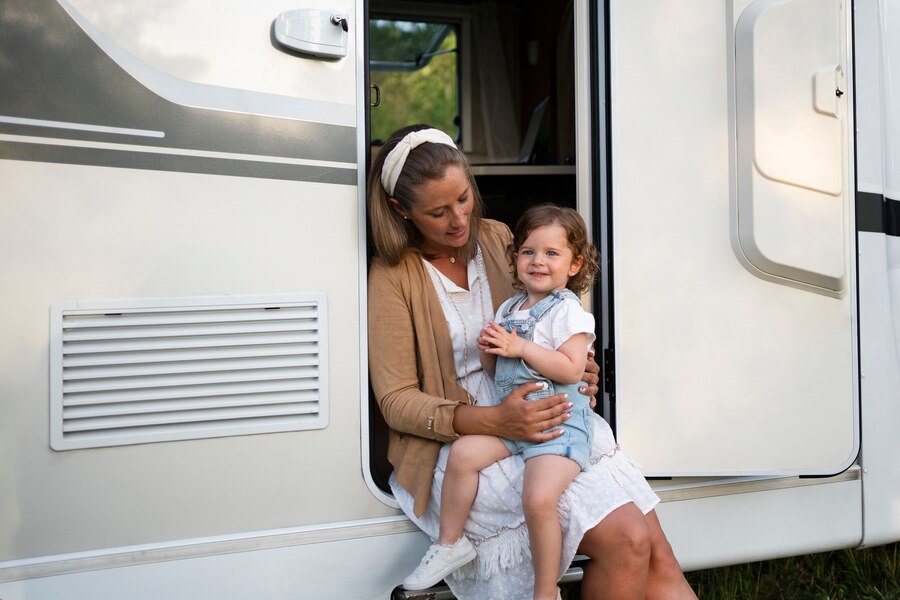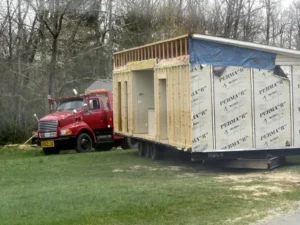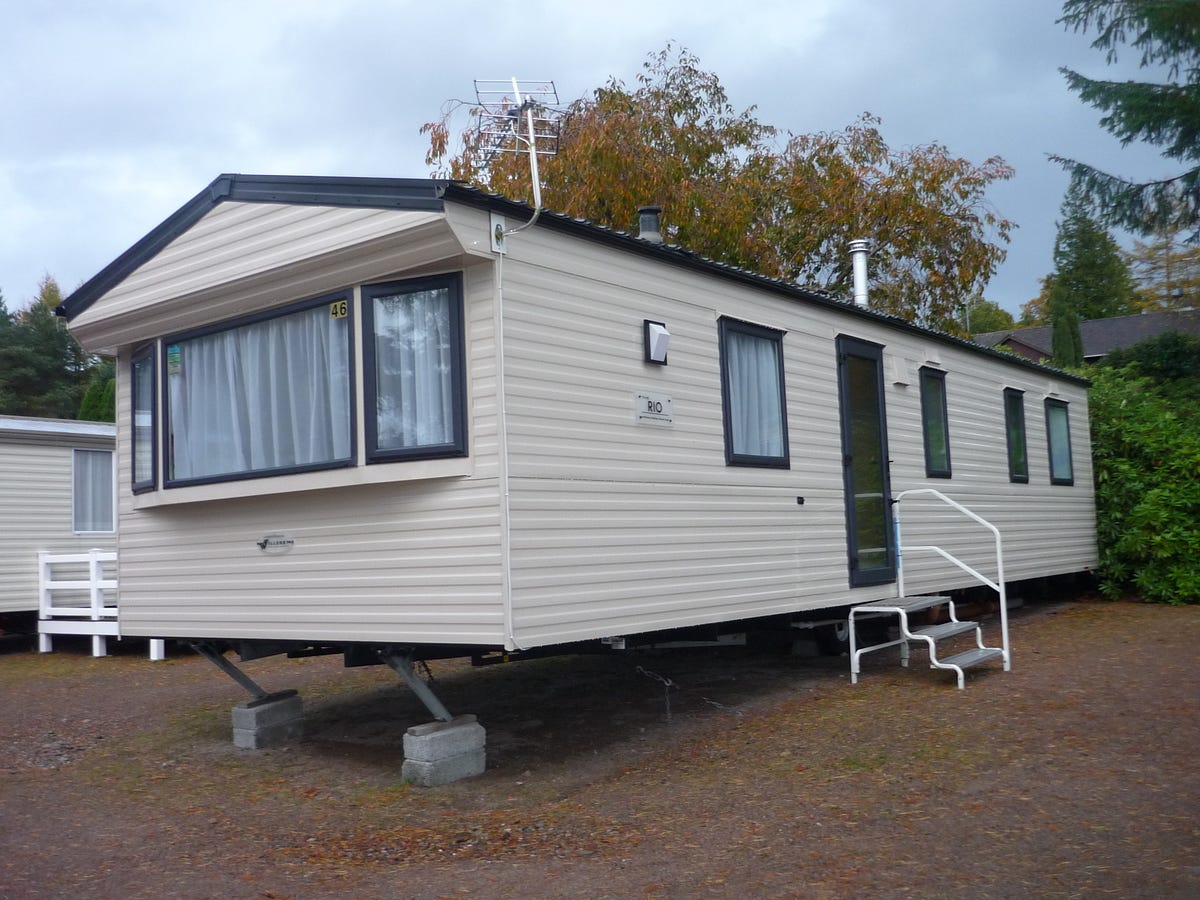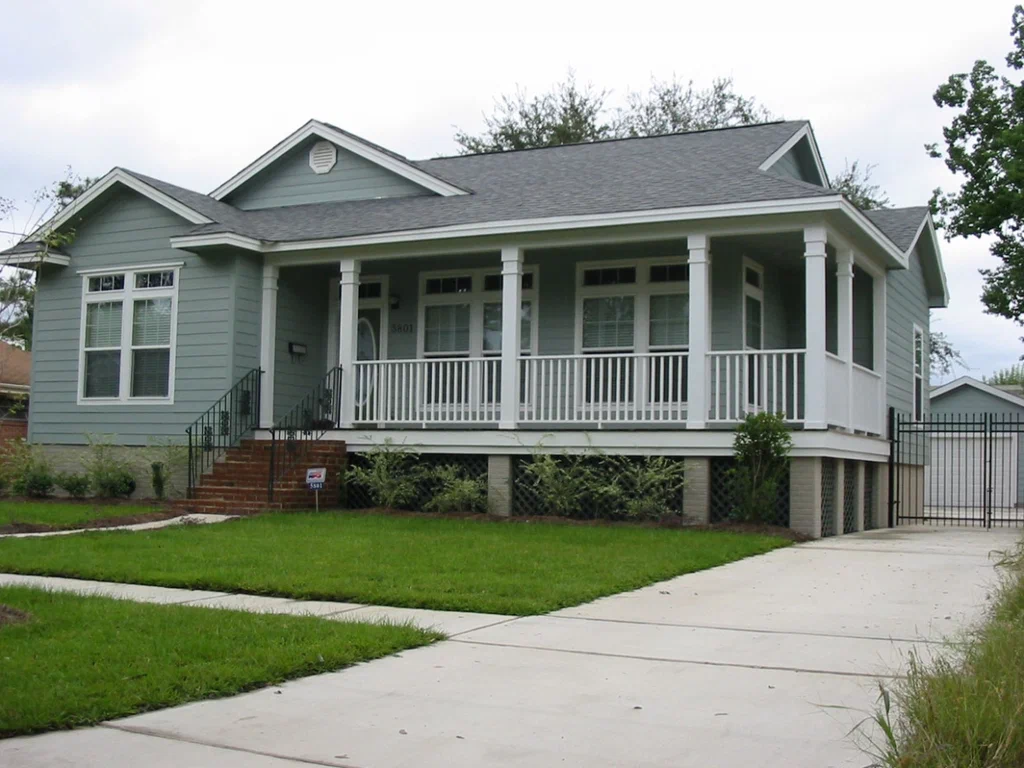Finding out how much moving your mobile home will cost wonders. Think twice if you believe you could hook it to the rear of your truck and fly off. Moving a mobile home that satisfies HUD criteria for today—also known as a “manufactured home”—is a big job. It is really expensive as well. Still, it may be accomplished with the correct team of mobile home movers and enough advance time. The following is a general guide on moving a mobile home.
Have You Ever Wondered How Much It Costs to Move a Mobile Home?
How much to move a mobile home, the type of mobile home you have—single-, double- or triple-wide—as well as whether you decide to conduct a full-service or a transport-only transfer determine this. Attaching the move-ready manufactured home to a towing vehicle, transporting it to a new site, then unhooking it will constitute a transport-only move. Additionally providing the required permits and liability insurance would be the mover. Along with disconnecting all utilities, skirting and associated structures, and then reconnecting them at the new place, a full-service move addresses all of the aforementioned.
Estimates of moving a manufactured house
Average cost to move a mobile home, to use an approximation, the move alone for transportation will run somewhere between $700 and $3,500. The full-service relocation will run $3,000 to $14,000. CostHelper claims that the transportation-only cost for up to 60 miles is roughly $700-$1,000 for a single-wide, $2,000-$2,500 for a double-wide, and $2,600-$3,500 for a triple-wide.
Using the full-service moving agency and the same up to 60-mile trip will cost between $3,000-$5,000 to relocate a single-wide mobile home. Full-service moves comprise the disconnect, reconnect, and transportation services. Moving a double-wide mobile home will run from $4,000 to $10,000. Expect to pay $10,000-$14,000 or more for triple-width. These are clearly approximations, of course.

Price to Move a Mobile Home.
Moving your mobile home will cost depending on several different elements, including:
- Work expenses
- Prepare offerings.
- Transferring goods
- Home dimensions
- Allowances
- place
- Journey distance
- Regional laws
Different Mobile Home Relocation Cost
Long-distance trips will cost more since these rates are dependent on per-mile costs among other things. Moving firms usually charge between $1.50 and $1.65 per mile for the pilot cars and between $4 and $5.50 for the towing truck. Obviously, the journey distance and the present gasoline price will also affect the rate. Generally speaking, most moving firms will relocate a small single-wide house within the state and up to 60 miles starting at roughly $1,000.
Why does moving a mobile home cost what it does?
Moving a mobile home will cost different depending on the relocation. There are several typical elements influencing the overall cost. among these are:
Move’s distance from here, The move will be less expensive the shorter its distance. Lugging a mobile house behind a big truck calls for quite a lot of gasoline, as you could guess. Not to mention, movers won’t exactly be able to drive quickly or zoom around turns. A longer relocation might also call for new tires and tools to manage the trip.
Mobile house size
The whole cost will be much influenced by the size of your house. Single-wides will, predictably, be less expensive to relocate than double-wides, which are twice as large. Should your house be too broad for safe street access, you might additionally have to pay for a police escort or temporary road closure. Taller residences usually cost more to relocate since the travel path may be restricted and hence result in more kilometers traveled.
Mobile home’s weight
Older homes usually weigh between 35 and 40 lbs. per square foot, whereas recently built homes weigh anywhere from 45 to 50 lbs. per square foot, claims Free Mobile Home Info. Your mobile home, then, may weigh up to 40,000 pounds if it is 800 square feet. Nice! Remember, the movers will require more moving tools and supplies the heavier your mobile home is. This also naturally results in increased expenditure of money.
Authorizations and inspections
Permits for each territory your mobile home passes through or enters may be required if you are relocating it to a new county or state. Fortunately, before the relocation your movers should be able to assist you in obtaining these permits. Install your mobile home in a new city and you might also need a “setup” permission. Regarding inspections, certain states—including Florida—mandate required inspections of older mobile homes. This guarantees homes are up-to-current and safe.
Moving goods
Moving a mobile home calls for lots of moving items from tools and supplies to tow hitches and tires. Your contract should let your moving firm break out the expenses of required moving supplies.
Plan services.
Should you intend to pay full-service movers for the relocation of your mobile home, you should budget more. Apart from transportation expenses, many experienced movers may additionally demand a supplementary fee for disassembly and/or setup of the mobile home. These prices could cover disconnecting and reconnecting your utilities, removing and reinstalling a porch, foundation (or skirting), and inside features. Reconnecting a double-wide mobile home will also fee charged by mobile home movers. These services run anything from $1,000 to $5,000. Though many mobile home movers provide setup services, homeowners should be aware that before the transfer they may still have to remove the external features and skirting of their mobile home.
Age and general state of condition
Should the mobile home be older or in need of major repairs, the movers could have to spend more time repairing and adjusting it before moving it.
LIABILITY and Insurance
- Should you be utilizing professional movers, you will have to buy liability coverage for the relocation. You might also wish to give outside insurance some thought. See your provider to find out whether your current mobile home insurance covers a mobile home while it is in transportation. Hiring experts to handle the relocation of a mobile home has advantages as well.
- Moving a mobile home by oneself is not advised by us. This kind of operation calls for a team of experts who not only know how to put up a mobile home but also have driving expertise carrying big weights connected to the rear of their vehicle. Those transferring their mobile homes across state boundaries and a great distance could require several movers to handle transportation. This is so because a mover might be licensed to drive a mobile home in only one state, therefore they would have to hand off the vehicle to another driver once crossing the state boundary.
- Although paying a moving firm to manage your mobile home relocation is not cheap, there are advantages. Here are a few solid reasons to call a moving company to manage the relocation:
- Moving firms will get all the moving permits for you. Acquiring permits is a hassle. Luckily, before your move, mobile home moving firms will take care of the required permits. From local setup permissions to state transportation permits, the mobile home moving firm should handle all for you.
- Moving company will carry the mobile home for you. Driving a big truck rental is difficult enough without worrying about hauling a heavy load behind it. Therefore, we strongly advise hiring professionals to drive your mobile home, particularly if you drive a long distance, unless you are a seasoned truck driver. You run the risk of endangering others as well as yourself otherwise.
- It will spare you effort and time. From busted tires to setup services, using a moving company will help you avoid many kinds of trouble down the line. Hiring a professional mover is the best course of action if your ideal relocation is seamless and simple. We promise you – you won’t regret it.
How Much Does It Cost to Move a Mobile Home
Extra advice for relocation of mobile homes
Investigate your options for a mobile home relocation business. Compare the bids (they’re free!), ask for references, check internet reviews, and learn about its insurance policy before selecting a reputable moving business. Plan the add-ons in budget terms. Tell the movers whether you have an air conditioner, a shed, or a deck; they would most certainly cause extra fees. Talk about it ahead of time; if you want the movers to clean the lot after moving your house, that could also cost extra.
- Consult federal HUD rules for the proposed site. HUD establishes national built-in safety and construction guidelines for manufactured homes. It developed the so-called Wind Zones in 1976 under the HUD Manufactured Home Construction and Safety Standards, sometimes known as the HUD Code. July 2021 saw the most recent reiteration put into action. HUD separates the nation into three zones according on the vulnerability of each area to different storms and natural disasters. Measuring in pounds per square foot, the built house you have is meant to withstand the wind load of the zone it sits in.
- The Manufactured Housing Institute states that Zone I corresponds to a maximum of 70 mph wind speed; Zone II can endure a 100 mph wind speed; Zone III’s maximum is 110 mph. Homes sold in every zone have to either meet or surpass these guidelines. Therefore, be sure your mobile home will satisfy the criteria if you are switching zones. On the HUD data plate within your house, you can locate information on the Wind Zone, Roof Load, and Snow Load. One might find it in a kitchen cabinet, in a bedroom closet, or next to the main electrical panel.
- See the local legal rules pertaining to your intended relocation. The new site can have property age rules and more stringent building standards than the one you are moving from. Different building codes, park rules, and other guidelines abound in most mobile home communities. Although the moving company will advise you on what you need to know about the legal requirements of where you are going, we advise you to do some research on this as well.
- Remember also the need of providing notice. Review your lease and send formal notice within the designated timeframe. Those can differ depending on the home park. Look at the criteria for changing utilities. Make sure the utility companies give you the deadlines and whether there are any extra fees to pay as you get in touch with them to switch your location. Additionally, get in touch with the utility companies at the new site to apply by the deadlines; hence, there is no void whereby you would be left without electricity or water.
- Make sure the new site is fit for your mobile house. Is your new website ready? Have you have to tidy it? Are any trees to be cut? Level the land. Handle some chores to cut the costs. Although we advise against you personally relocating the house, there are certain alternatives to save expenses. Moving your stuff in a rental vehicle requires no professional assistance. Pack your house yourself; get free boxes, rent a moving car and drive it yourself. You might even save on the gasoline expenses for your vehicle rental!
- Get ready for the road inside your house. Tight and safe the windows and the doors. For further protection, you can cover them. Inside, either everything has to be stabilized or taken out before the relocation. Anything not anchored to the house should be gone. Considered: Designed to support the house, not necessarily with all your stuff within it, the axles can only carry so much weight. Now could be a good time to purge and tidy!
- Check the tires and wheels to be road ready. If you have been staying at one spot, you most likely didn’t give the wheel condition any thought. You could find that over time they have deteriorated. Before the move, a reputable moving firm will inspect the wheels, tires, chassis, and axles. The good news is that mobile home movers may include any required rentals or repairs in their quotes.
Questions about the cost of moving a mobile home
Discover the answers to the most often asked questions regarding the cost of moving a mobile home by keeping on reading that what is the cheapest way to move a mobile home.
Moving a mobile home calls for what kind of expenses?
Moving a mobile home can run anything from $700 to $14,000 and more. To mention a few, labor charges, setup services, moving supplies, home size, permits, location, travel distance, local laws and several transportation fees will determine the cost.
Does moving a mobile home call for a license?
Indeed, but a qualified prefabricated house mover should be able to assist with the necessary permissions and inspections related to moving your house.
Can I relocate my own mobile home?
Moving a manufactured house on your own is not something we advise either. If you want to save money, choose a reliable mobile home mover; but, pack your house yourself, locate free moving supplies, hire a moving truck, and explore other cost-cutting strategies.
About ready to relocate your built house?
Should you intend to relocate your manufactured house, you might have to rent a storage space at least briefly. Use the Find Storage Now tool on Moving.com to find self-storage facilities near your location. Click the “Find Storage” button after typing in your city and state or the zip code. We will also obtain you quotations from the nearest self-storage facilities so you may weigh options and expenses.








